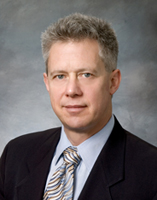The following commentary was submitted for publication by the proponents of Proposition 1A. It’s author, Loren Kaye, is the President of the California Foundation for Commerce and Education, which is a research and policy foundation associated with the California Chamber of Commerce. Kaye’s piece references an interview that FR conduced with economist Benjamin Zycher, which can be found here.
 Taking Issue with Economist Ben Zycher’s Analysis of Proposition 1A
Taking Issue with Economist Ben Zycher’s Analysis of Proposition 1A
By Loren Kaye
First, Mr. Zycher asserts that "(t)he language allows the governor to suspend or reduce the transfers into the BSF (reserve) for any fiscal year upon issuance of an executive order, and there is no limit on that power…it is likely that such executive orders will become the norm rather than the exception."
This assertion is flat wrong. He has identified a major flaw in Proposition 58, which the Governor insisted on fixing as one of the closing deals last year’s short-lived budget agreement – under withering criticism from the left. The Governor maintained this position in the latest negotiations, supported by Republicans. So for the past half-year, the only relevant language has stated that, beginning in 2011, the Governor can only suspend the mandatory transfer into the rainy day reserve when revenues crash below expenditures. Mandatory means mandatory.
Second, Mr. Zycher claims that Prop 1A will not slow the growth of spending – and may indeed have the opposite effect – because it allows revenues from any tax increase to be included in the revenue projection for the current fiscal year, thereby increasing the revenue cap.
And a ten-cent cigar costs a dime: If one increases revenues, then a trend line based on revenues will increase. But it will happen slowly, over ten years. [Delete: doesn’t] But the Proposition 1A revenue limit doesn’t make it any easier or more likely to raise revenues, compared with today. Indeed, if spending is already at the revenue cap, a tax increase would be difficult to justify since the proceeds of the new taxes would be deposited in the reserve.
What Mr. Zycher doesn’t say is that the bottom line for whether taxes would be increased has been, is, and will be getting a two-thirds legislative vote. Remember: since Proposition 13 passed in 1978, the Legislature has never raised taxes to increase programs and services – only to address deficits or emergencies. Since 1978, tax increases to finance new programs have only come about by a vote of the people.
Third, Mr. Zycher claims that the dynamic effects of tax increases and tax cuts would not be reflected in the revenue trends, and therefore would bias policy makers toward supporting tax increases and opposing tax cuts.
Here’s a news flash: state policy makers don’t acknowledge that tax increases (or tax cuts) affect the economy. Nothing new here. This attitude certainly needs changing, but Proposition 1A does not make matters worse. And in the context of putting a cap on revenues and creating a mandatory reserve, this amounts to a quibble.
Fourth, Mr. Zycher claims that the limit on transfers from the reserve to the General Fund, which is limited by inflation plus population, "will be subject to manipulation and other machinations."
This statement is a slur. Inflation and population measurements have been used to calculate identical formulas since the Gann Limit was adopted in 1979. They are all based on statistics provided by federal agencies that are scrupulous in their independence. A careful reading of the measure would show that these are the same indices that are currently used to determine the fate of billions of dollars, and have never been attacked as "manipulated" or being "elastic."
The analysis by Mr. Zycher described in the FlashReport interview may have been heartfelt, but it was less than compelling.
Care to read comments, or make your own about today’s Daily Commentary?
Just click here to go to the FR Weblog, where this Commentary has its own blog post, and where you can read and make comments.

